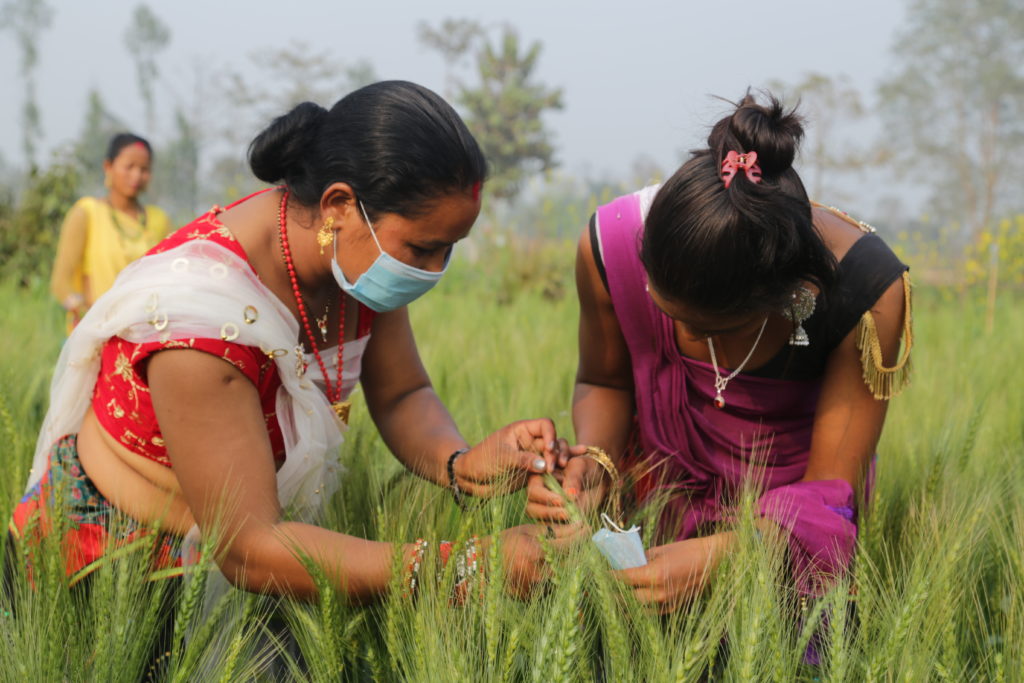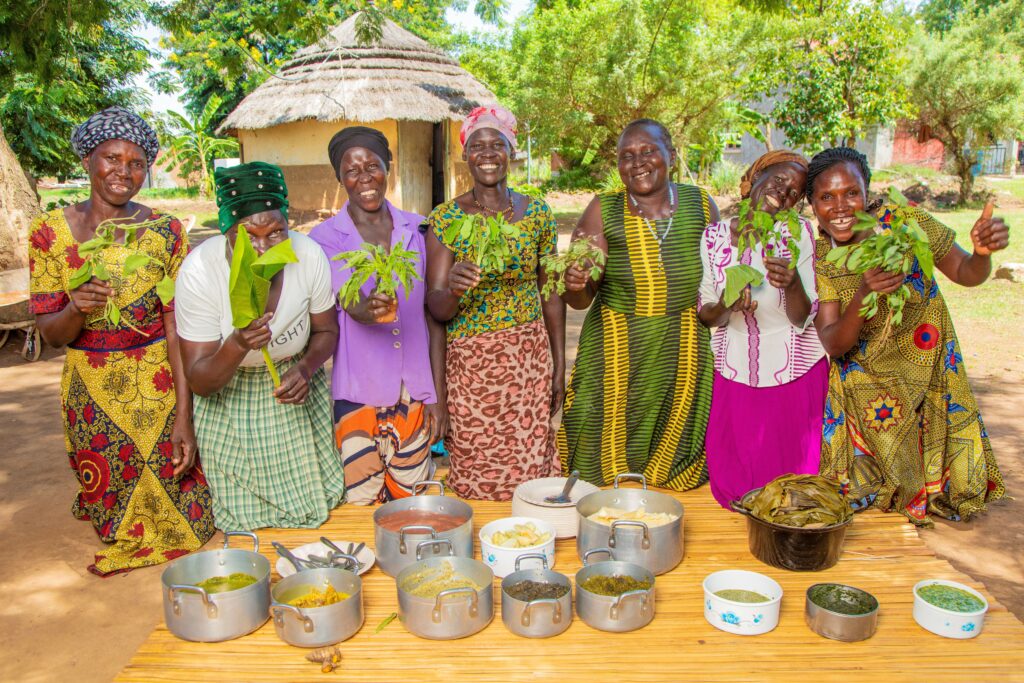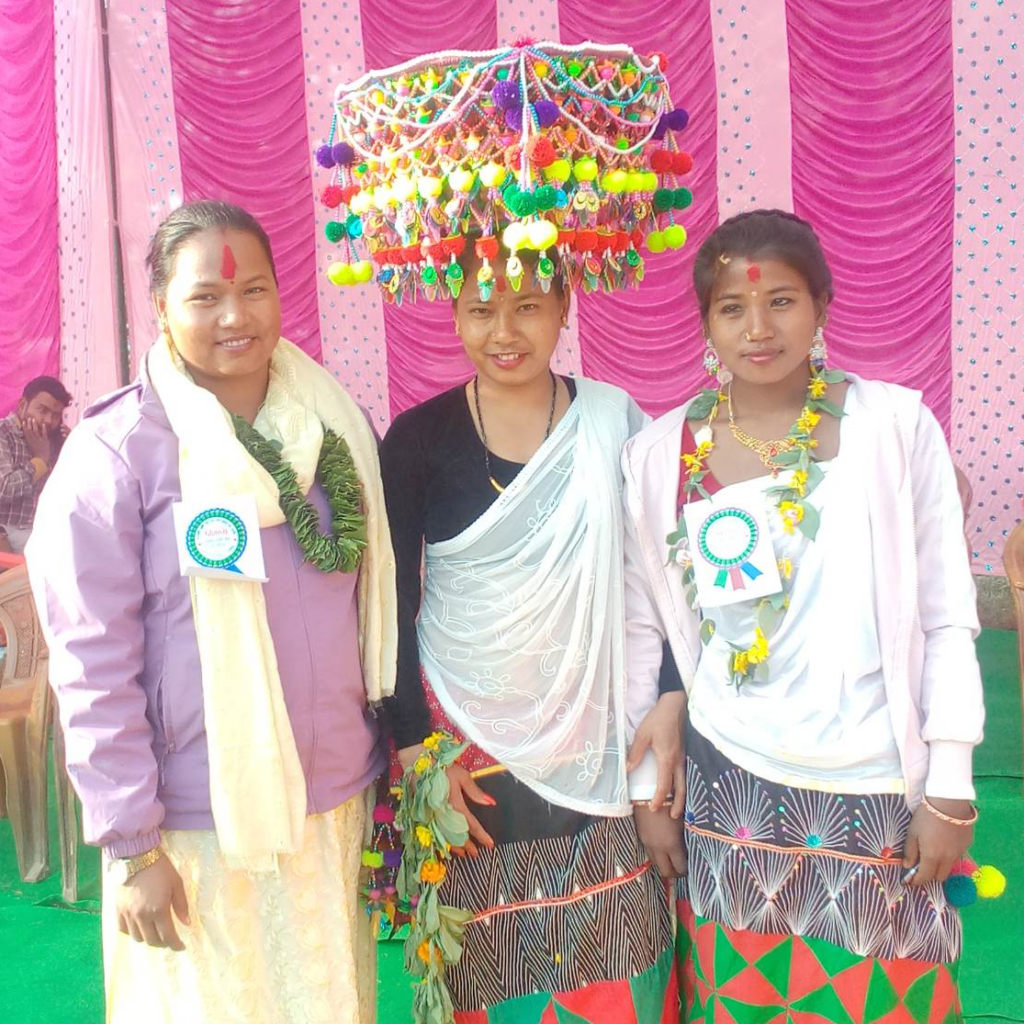SD=HS has reached an important milestone: we are halfway through the programme’s current phase. This demands a moment of reflection looking back on the last two years, to plan intentionally for 2022 and 2023.
Our mid-term review (MTR) is the result of a participatory process. It is based on 342 stories straight from the field in seven countries. Partners collaboratively developed future scenarios for SD=HS, reaching 57 different story lines. The evaluation team, led by Eva Otero y Itziar Gomez from Leitmotiv, conducted virtual semi-structured interviews with key informants and led focus groups discussion, participants included partner organisations and Oxfam staff. The MTR draft was largely circulated, with an invitation to two online discussions open to all partners and allies.
In the next two years, the SD=HS team will focus on decentralizing ways of working, as a crucial step to ensure sustainability. Similarly, we will concentrate on institutionalization of our approach, so partners can take the lead. Just like the our workshop series in 2021, Oxfam and partner organizations will continue efforts to bring farmers to the table as equal participants with an equal say. You can find a more visual and story-based overview of this MTR here.
Mid-Term Review Executive Summary
This report shares the findings of the Mid-Term Review (MTR) of the Sowing Diversity = Harvesting Security (SD=HS) programme launched by Oxfam Novib in 2014 within the framework of the Seeds GROW programme with the financial support of the Swedish International Development Cooperation Agency (Sida).
The main purpose of the MTR was to determine the extent to which SD=HS activities are contributing towards the programme’s overall objectives and outcomes, to identify the lessons that can be drawn to date, and to help stakeholders acquire the necessary information to take timely and informed decisions about the future of the SD=HS programme. The MTR has actively engaged key stakeholders through an analytical process of collective examination and assessment (including a literature review, key informant interviews, focus groups discussions, collection of stories through Sprockler and ParEvo, a preliminary findings workshop, and discussions with key stakeholders on the draft MTR report). The evaluation team has encouraged the participation of a wide range of stakeholders, with a view to ensuring ownership, reflection, and immediate learning outside of (and complementary to) the recommendations included in this MTR report and their implementation.
The findings of the MTR suggest that despite the challenges posed by the current COVID-19 pandemic, the SD=HS programme has achieved positive results to date and is clearly responding to the needs and rights of indigenous peoples, smallholder farmers, women and youth. SD=HS is also contributing to global efforts to rebalance power relations by bringing the interests of smallholder farmers to the international arena and will continue to remain relevant if it uses its demonstrative value to secure buy-in from organisations that can institutionalise the programme’s approach and scale it up. Even if SD=HS is clearly relevant to all stakeholders, its alignment with Oxfam Novib and the Oxfam family is uncertain in a context marked by Oxfam’s restructuring process.
In terms of coherence, the SD=HS programme has a strong and well-articulated logic that is widely shared by all stakeholders, even if various assumptions are still to be proved or challenged, partly due to the timeframe of the programme. The MTR has also noted that certain implementation efforts have been diverted towards expanding scope and focus, given the programme’s commitment to the communities and their long[1]standing relation with partners.
One of the key strengths of the SD=HS programme noted is the wealth of synergies built between the SD=HS programme and other initiatives, including excellent collaboration and networking with key sector actors. SD=HS continues to occupy a unique position in the sector and there are no duplications of its role.
In terms of efficiency, SD=HS staff and partners have succeeded in efficiently coordinating and managing resources with positive results despite COVID-19-related challenges, coupled with factors such as extreme weather events and elections in several countries. As a result of these efforts, the SD=HS programme has achieved a remarkable overall delivery rate of 89%. However, the distribution of financial resources raises questions about where decisions are made, levels of participation and accountability. Overall, coordination between implementing partners and the Oxfam Novib Global Team has been effective and fluid throughout implementation.
In terms of effectiveness, the SD=HS programme has achieved many positive results under all four pillars and across the eight countries of implementation, even if existing discrepancies in the available data make the level of achievement difficult 4 to ascertain. The capabilities of implementing partners and the length of their engagement in the SD=HS themes constitute key success factors.
The SD=HS programme demands high levels of participation from stakeholders and its narrative promotes transformative changes through empowerment. In practice, this translates into a highly participatory approach in FFSs that is transformative in nature. In terms of the management and governance of the programme, the type of participation that emerges seems to be more of a representative or instrumental nature. There have also been great efforts by the SD=HS programme to facilitate women’s participation at all levels with positive results across activities, and the participation of indigenous peoples constitutes another positive aspect. In the case of youth, promising results have emerged but ensuring their participation remains a challenge.
In terms of contributions to changes, many positive results have been noted, which is remarkable, considering that most of the programme has been carried out under adverse global conditions due to the COVID 19 pandemic. Most of these contributions were related to learning and the acquisition of new skills and were of a collective nature, with the community dimension playing a central role.
In terms of sustainability, ensuring that results achieved to date continue to flow beyond the life of the programme constitutes a long-term process that depends on the commitment and the capacity of the different stakeholders to maintain their engagement over time. There have been important efforts to institutionalise FFS, with positive advances to date, while the results that are more likely to continue are those related to capacity-building. Although the overall prospects for FSEs are improving, ensuring their sustainability will require more time. Results that have influenced policy practices are likely to be sustainable, even if political changes at both the national and international levels can have unexpected effects.
Finally, learning constitutes a key result area of the programme that is relevant to all stakeholders, since the type of action-research that is promoted allows for multi-stakeholder engagement at different levels. Furthermore, SD=HS is uniquely placed to play a knowledge brokering role in the sector. The programme’s Participatory Knowledge Management and Learning Strategy constitutes a positive step in this direction, especially if it maximises opportunities to share the wealth of knowledge generated by the programme and strengthens this dimension through its “linking and learning partner” in the future.
A series of recommendations are provided in the report:
- to strengthen coordination and integration among pillars;
- to strengthen the programme’s policy practice influencing component;
- to join the “glocal” dots;
- to maximize the programme’s demonstrative value;
- to strengthen inclusiveness;
- to embrace the concept that “time is money”;
- to rebalance power relations;
- to strengthen transparency;
- to fine-tune the generation of information;
- to enhance participatory knowledge management and learning efforts;
- to reflect on future scenarios;
- to promote seed multiplication;
- to explore climate insurance;
- to collect more evidence on the impact of NUS on nutrition.









